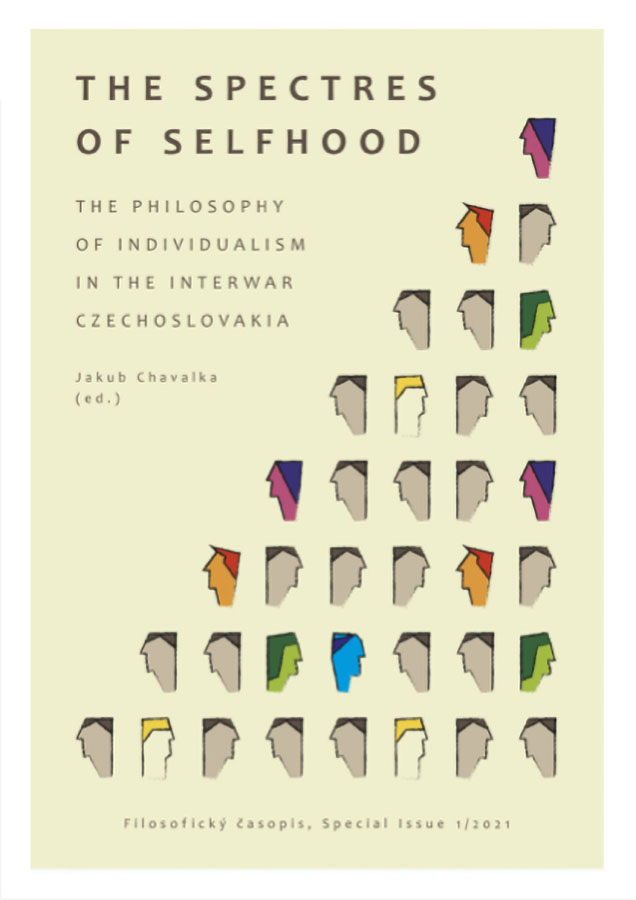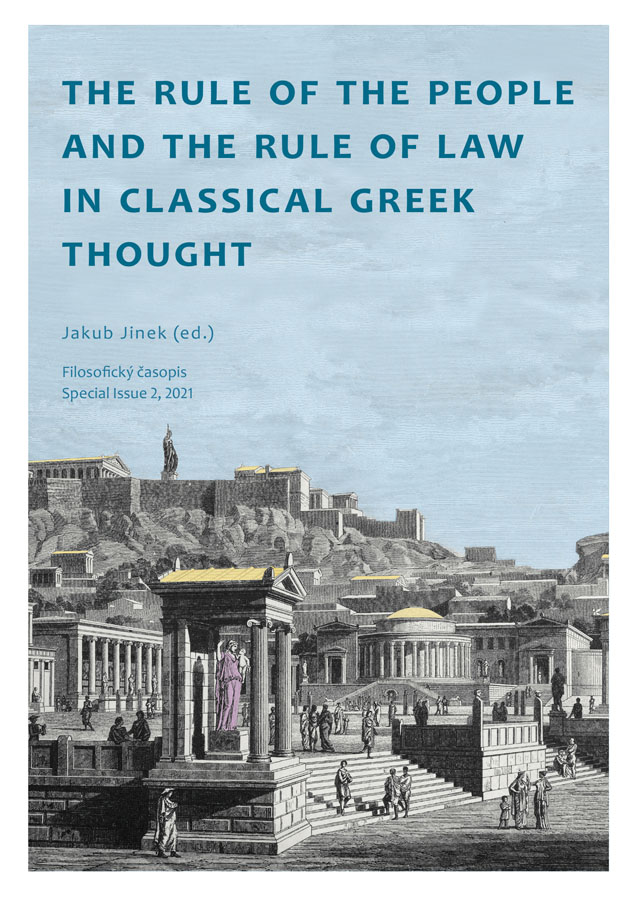Konkurz na mimořádná čísla a monotematické bloky ročníku 2023
V souladu s publikační strategií Filosofického časopisu vyhlašuji konkurz na mimořádná čísla a monotematické bloky.
Mimořádná čísla
Konkurz se vztahuje na dvě až tři mimořádná čísla v cizím, především anglickém jazyce, která by v ročníku 2023 měla vyjít zároveň se čtyřmi sešity pravidelné řady. Jedná se o publikační výstupy, jež finančně nezajišťuje Filosofický časopis, přičemž garanty jsou hostující editoři. Počet příspěvků ani jejich rozsah není v mimořádných číslech omezen, všechny v nich publikované texty však musí projít standardním recenzním řízením Filosofického časopisu. Mimořádná čísla jsou otevřena i mezioborovým tématům.
Monotematické bloky
Monotematický blok tvoří minimálně tři hlavní studie, maximálně pak pět recenzovaných formátů, jež musí uspět v standardním recenzním řízení. Více informací naleznete na webové stránce Filosofického časopisu.
Zájemci o publikaci mimořádných čísel a monotematických bloků mohou své návrhy přihlašovat v redakci Filosofického časopisu od konce února do konce září 2022. Návrhy musí obsahovat kompletní seznam autorů a předběžné názvy příspěvků včetně jejich krátkých anotací a předpokládaného rozsahu. Editoři návrhů, které hlasováním vyberou členové redakčního kruhu, budou své projekty obhajovat na podzimním zasedání redakční rady Filosofického časopisu.
Mají-li úspěšné návrhy včas projít standardním recenzním procesem, na jehož základě mohou být v daných termínech publikovány, je třeba kompletně připravené verze rukopisů zaslat do redakce Filosofického časopisu nejpozději do poloviny dubna 2023.
Těšíme se na vaše projekty a návrhy.
Milan Znoj, šéfredaktor Filosofického časopisu
Mimořádná čísla ročníku 2021 a 2022:
Vážení a milí, čtenářky a čtenáři,
rád bych vás tímto informoval o mimořádných číslech, která Filosofický časopis publikoval v loňském a letošním roce. Jsou to:
1) The Dissident
Six Readings of “The Power of the Powerless” by Václav Havel
Niklas Forsberg, Ulrika Björk (eds.)

This special issue is devoted to rereading and reassessing Václav Havel’s seminal essay “The Power of the Powerless”, in the light of the present day culture and ethico-political scene. The Chartist efforts to pursue a non-political politics, lead us to reflect upon power relations and pre-political textures, where existential, political and ethical concerns are allowed to come forth as intermingled, not only with each other but also with questions about language, symbolism and truth. The papers collected here are investigations into how these forms of interconnection and intertwining between ethics, existential concerns, authenticity, language, meaning and truth look.
124 stran
2) The Spectres of Selfhood
The Philosophy of Individualism in the Interwar Czechoslovakia
Jakub Chavalka (ed.) Individualism as a concept did not have a very good reputation in the interwar Czechoslovakia. Yet, already Masaryk and later on Peroutka made a significant appeal to the cornerstone of democracy – personality. The aim of the publication is to show how the thinkers with the biggest cultural and spiritual influence of the time dealt with the problem of creating a strong individuality, and what troubles they had to face. None of them (perhaps with the exception of Ladislav Klíma) declared individualism as the centre of their philosophical thinking. However, a closer look at their philosophy points to interconnectedness of the “struggle for individuality” with the struggle of the newly created Republic for its self-determination. After all, some of the thinkers understood nation or state as autonomous individual, albeit collective. The intentions of the authors of this collection of texts is to help better understand how the problem of individuality formed our own history.
Individualism as a concept did not have a very good reputation in the interwar Czechoslovakia. Yet, already Masaryk and later on Peroutka made a significant appeal to the cornerstone of democracy – personality. The aim of the publication is to show how the thinkers with the biggest cultural and spiritual influence of the time dealt with the problem of creating a strong individuality, and what troubles they had to face. None of them (perhaps with the exception of Ladislav Klíma) declared individualism as the centre of their philosophical thinking. However, a closer look at their philosophy points to interconnectedness of the “struggle for individuality” with the struggle of the newly created Republic for its self-determination. After all, some of the thinkers understood nation or state as autonomous individual, albeit collective. The intentions of the authors of this collection of texts is to help better understand how the problem of individuality formed our own history.
228 stran
190 Kč
3) The Rule of the People and the Rule of Law in Classical Greek Thought
Jakub Jinek (ed.) A common feature of the contributions collected in this special issue of the Philosophical Journal is the effort to grasp the relationship between the rule of the people and the rule of law, which has been a central problem of political philosophy since its origins in classical times. The articles deal with the original Greek understanding of the law and its relation to democracy, the sophistic problematization of this relationship (under the title of the opposition physis – nomos), and especially its new conception in the work of Plato and Aristotle. The authors of the papers are experts on ancient political thought associated with the research network Collegium Politicum.
A common feature of the contributions collected in this special issue of the Philosophical Journal is the effort to grasp the relationship between the rule of the people and the rule of law, which has been a central problem of political philosophy since its origins in classical times. The articles deal with the original Greek understanding of the law and its relation to democracy, the sophistic problematization of this relationship (under the title of the opposition physis – nomos), and especially its new conception in the work of Plato and Aristotle. The authors of the papers are experts on ancient political thought associated with the research network Collegium Politicum.
143 stran
140 Kč
4) Varieties of Naturalism in Contemporary Philosophy
Michal Chabada, Róbert Maco (eds.) Naturalism has been at the centre of meta-philosophical debates for quite some time. It dominates in most branches of theoretical philosophy and its influence is increasingly felt in the domain of practical philosophy. Not only adherents of this movement, but also its critics, are already aware that this is not just a fleeting fashion, but a serious attempt to reorientate and redefine the entire philosophical enterprise. The contributions collected in this special issue seek to do justice to this situation and to the multifaceted character of contemporary philosophical naturalism. The diversity of topics covered in the essays, from naturalistically orientated ethics through epistemology and metaphysics to critical reactions to contemporary naturalism, reflects this complexity. The common feature of all contributions is the effort to better understand the current state of philosophy, regardless of whether their authors align with the naturalistic movement or are critical of it.
Naturalism has been at the centre of meta-philosophical debates for quite some time. It dominates in most branches of theoretical philosophy and its influence is increasingly felt in the domain of practical philosophy. Not only adherents of this movement, but also its critics, are already aware that this is not just a fleeting fashion, but a serious attempt to reorientate and redefine the entire philosophical enterprise. The contributions collected in this special issue seek to do justice to this situation and to the multifaceted character of contemporary philosophical naturalism. The diversity of topics covered in the essays, from naturalistically orientated ethics through epistemology and metaphysics to critical reactions to contemporary naturalism, reflects this complexity. The common feature of all contributions is the effort to better understand the current state of philosophy, regardless of whether their authors align with the naturalistic movement or are critical of it.
125 stran
130 Kč
Všechna tato čísla si můžete zakoupit ve vybraných knihkupectvích nebo objednat na adrese Tato e-mailová adresa je chráněna před spamboty. Pro její zobrazení musíte mít povolen Javascript.
Všem přeji potěšení z dobré četby!
Milan Znoj, šéfredaktor Filosofického časopisu